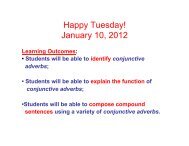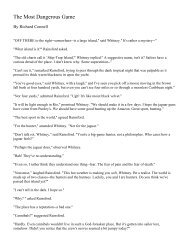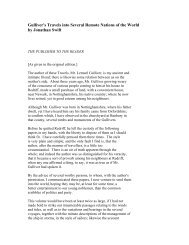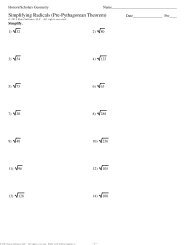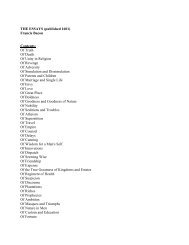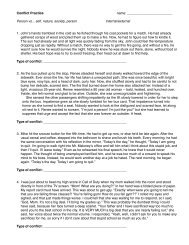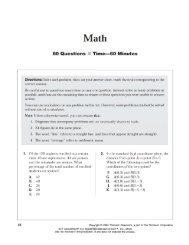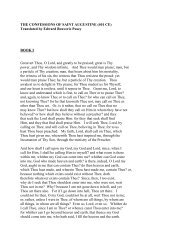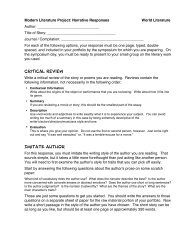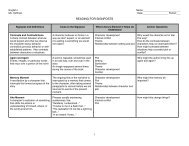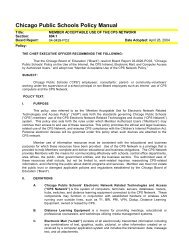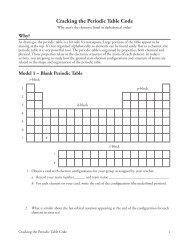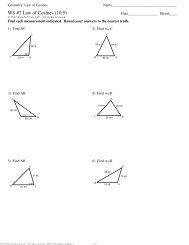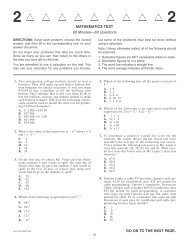CONFUCIUS THE ANALECTS
CONFUCIUS THE ANALECTS
CONFUCIUS THE ANALECTS
Create successful ePaper yourself
Turn your PDF publications into a flip-book with our unique Google optimized e-Paper software.
advance and lay hold of truth; the cautiously-decided will keep<br />
themselves from what is wrong.'<br />
CHAP. XXII. 1. The Master said, 'The people of the south have<br />
a saying-- "A man without constancy cannot be either a wizard or a<br />
doctor." Good!<br />
2. 'Inconstant in his virtue, he will be visited with disgrace.'<br />
3. The Master said, 'This arises simply from not attending to<br />
the prognostication.'<br />
CHAP. XXIII. The Master said, 'The superior man is affable,<br />
but not adulatory; the mean man is adulatory, but not affable.'<br />
CHAP. XXIV. Tsze-kung asked, saying, 'What do you say of a<br />
man who is loved by all the people of his neighborhood?' The<br />
Master replied, 'We may not for that accord our approval of him.'<br />
'And what do you say of him who is hated by all the people of his<br />
neighborhood?' The Master said, 'We may not for that conclude that<br />
he is bad. It is better than either of these cases that the good in the<br />
neighborhood love him, and the bad hate him.'<br />
CHAP. XXV. The Master said, 'The superior man is easy to<br />
serve and difficult to please. If you try to please him in any way<br />
which is not accordant with right, he will not be pleased. But in his<br />
employment of men, he uses them according to their capacity. The<br />
mean man is difficult to serve, and easy to please. If you try to<br />
please him, though it be in a way which is not accordant with right,<br />
he may be pleased. But in his employment of men, he wishes them<br />
to be equal to everything.'<br />
CHAP. XXVI. The Master said, 'The superior man has a<br />
dignified ease without pride. The mean man has pride without a<br />
dignified ease.'<br />
CHAP. XXVII. The Master said, 'The firm, the enduring, the<br />
simple, and the modest are near to virtue.'<br />
CHAP. XXVIII. Tsze-lu asked, saying, 'What qualities must a<br />
man possess to entitle him to be called a scholar?' The Master said,<br />
'He must be thus,-- earnest, urgent, and bland:-- among his friends,



